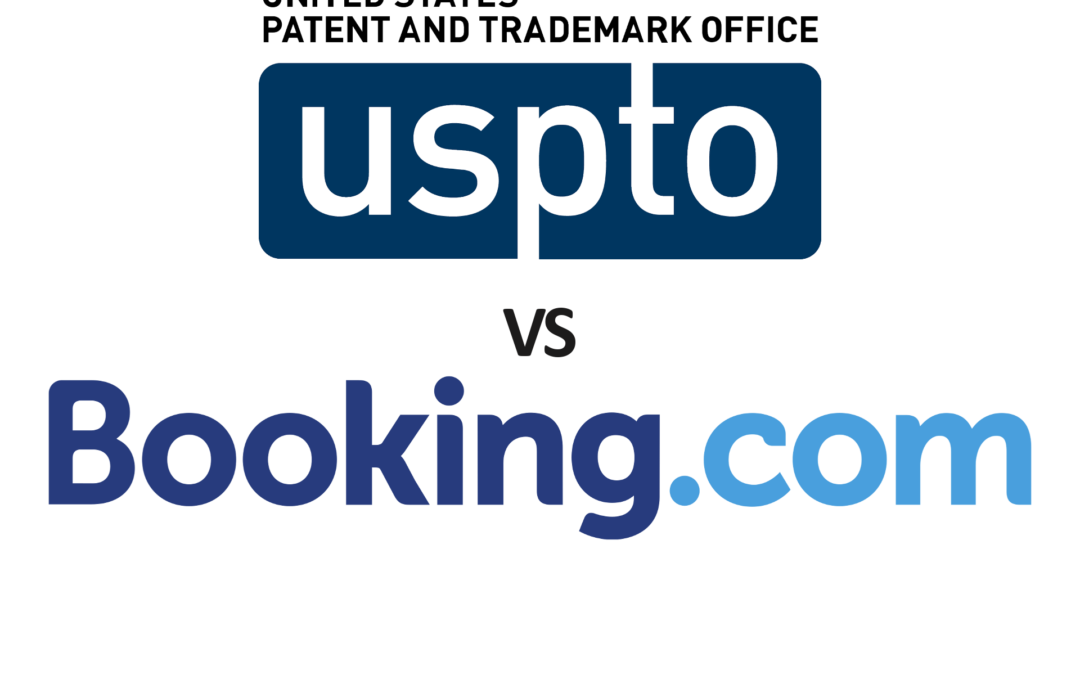It is well settled law that a generic name—the name of a class of products or services—is not eligible for federal trademark registration. However, in this decision the Supreme Court held that a term styled “generic.com” is a generic name representing a class of goods or services if the term has that meaning to consumers. More specifically, “Booking.com,” which is a “generic.com” style domain for a digital travel booking company of the same name, was found to be eligible for trademark protection in view of evidence that consumers do not consider the term “Booking.com” to refer to a generic class of booking services.
Booking.com filed applications to register several marks in connection with travel-related services, each containing the term “Booking.com.” The United States Patent and Trademark Office (USPTO) denied the registrations, finding the term “Booking.com” generic and therefore not eligible for trademark protections. The USPTO reasoned that “Booking” generically refers to “a reservation or arrangement to buy a travel ticket or stay in a hotel room.” Appending “.com” does not alter this generic character. Booking.com sought review of the USPTO’s decision in district court.
The district court disagreed with the USPTO’s decision and found the mark eligible for trademark protections. Although generic terms are not eligible for trademark protection, descriptive terms are protectable if they have acquired “secondary meaning.” Secondary meaning has been acquired where consumers consider the term to identify the specific applicant’s goods or services rather than the generic class as a whole. Here, the district court concluded that “Booking.com,” unlike “booking,” is not generic, taking particular note of Booking.com’s survey evidence of consumer perception. The district court found that the evidence shows the consuming public “primarily understands that ‘Booking.com’ does not refer to a genus, rather it is descriptive of services involving ‘booking’ available at that domain name.”
The USPTO appealed to the Court of Appeals for the Fourth Circuit, which affirmed the district court’s decision. The fourth circuit rejected the USPTO’s argument that the combination of “.com” with a generic term like “booking” “is necessarily generic.” The USPTO again appealed to the Supreme Court for review.
The Supreme Court affirmed the appeals court’s decision, holding that “[w]hether any given ‘generic.com’ term is generic . . . depends on whether consumers in fact perceive that term as the name of a class or, instead, as a term capable of distinguishing among members of the class.” To determine whether consumers perceive the term as the name of a class or as an indicator of the source of a good or service eligible for trademark protection, a court may look to evidence including consumer surveys, dictionaries, evidence of usage by consumers and competitors, and any other source of evidence bearing on how consumers perceive a term’s meaning.
Dissenting from the majority opinion, Justice Breyer argued that Booking.com’s company name informs the consumer of the basic nature of its business and nothing more. He further argues that the addition of “.com” has no capacity to identify and distinguish the source of goods or services, but is rather a necessary component of any web address. As such, the generic name in combination with “.com” conveys only that the website owner operates a website in relation to the generic class of goods or services.
Justice Breyer further argued that whether a given “generic.com” style domain name is eligible for trademark protection will now depend on the availability of consumer survey evidence, which can be an unreliable indicator of genericness in his view, and threatens anticompetitive consequences such as allowing “generic.com” style domain name owners to exclude others from using similar domain names. In this case, “Booking.com” may be able to exclude others from registering domain names such as “eBooking.com” or “Bookings.com” Here, Booking.com agreed they would not do so, but it is unlikely other domain owners will make similar assurances.
Citations
Patent and Trademark Office v. Booking.com B. V., No. 19-46 (U.S. Jun. 30, 2020)
Are you interested in filing a trademark to protect your business? View our trademark services page to see how we can help you build value in your brand.
